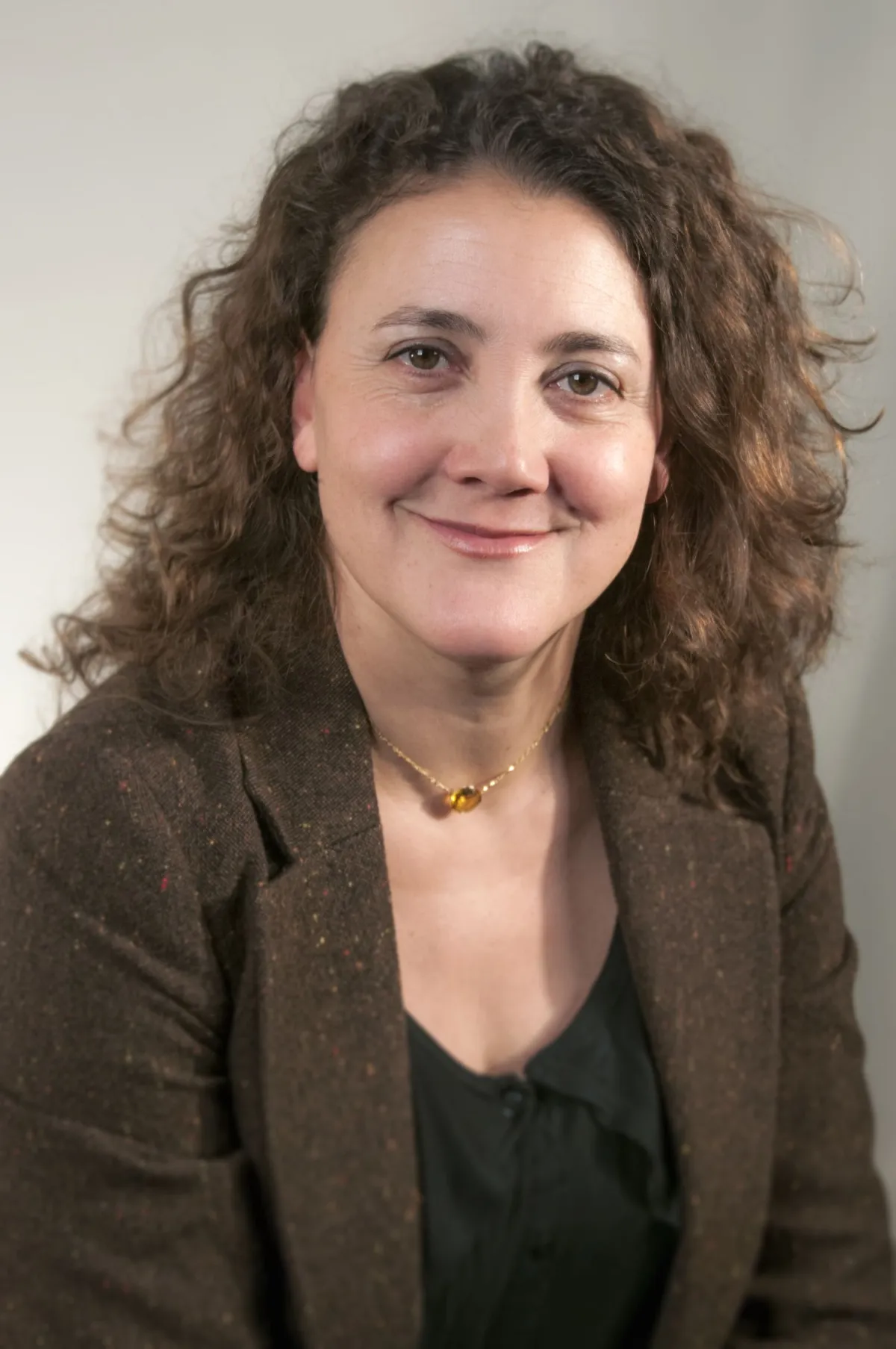Strengthen your operational vision of the company and adapt your managerial stance to the new challenges facing your organisation with the Executive Master in General Management.
Presentation
Useful informations
Next intake dates:
- January 2026 - Online
- March 2026 - Lyon & Paris
- April 2026 - Online
12 months at a rate of 3-4 days per month
It is possible to validate this diploma in blocks of skills
The executive master in video

Catherine PARDO is a professor of business-to-business marketing at emlyon business school. She is the academic director of the certificate program “Piloting Marketing Strategy by Integrating Digital Technology.” Her research focuses on how organizations manage their exchanges of products and services (particularly when customers are “key accounts”).

Sandrine Vivian has been an associate professor of finance, accounting and management control at emlyon business school for over 10 years. She works with a number of companies on performance management issues.
Goals
- Play an active role in the digital transformation of your unit by understanding the main emerging technologies and identifying the key success factors.
- Understand and analyze the company's strategy in its competitive environment to develop operational action plans within its unit.
- Manage human resources to improve managerial performance, taking into account CSR and quality of working life.
- Develop an agile management style to cope with constantly changing environments.
- Integrate the financial dimension into operational decision-making.
- Analyze and segment your market to build a specific offer that creates value.
- Use digital marketing techniques.
- Identify relevant performance indicators to manage your business unit.
- Develop emotional intelligence to better manage stress and improve team relations.
- Lead change and develop collective intelligence by integrating the interplay of the different players.
Program
On completion of this certificate, you'll be able to understand and analyze corporate strategy in its competitive environment, and draw up operational action plans within your unit.
You will learn to:
- Analyze your company's strategy;
- Identify different development models;
- Rethink the business model;
- Deploy corporate strategy at unit level and evaluate its implementation.
On completion of this certificate, you will be able to identify the nature of the marketing activity in your company and equip yourself with the methods and tools to implement it quickly and effectively.
Among other things, you will learn to:
- Define the challenges of marketing;
- Position marketing within corporate strategy;
- Gain an overview of a digital marketing strategy;
- Develop a customer-oriented value proposition.
At the end of this module, you'll know how to manage human resources to improve your managerial performance.
Among other things, you will learn how to:
- Establish an HR diagnosis;
- Identify and use HR action levers relevant to your unit;
- Manage your unit's managerial relations.
At the end of this module, you'll know how to develop an agile management style to cope with constantly changing environments.
Among other things, you will learn to:
- Develop personal excellence;
- Create the conditions for mobilizing and sustaining employee commitment;
- Manage the challenges and impacts of new ways of working;
- Manage internationally.
On completion of this certificate, you will be able to work efficiently with finance professionals (finance department, management control team, external financial partners) and measure the financial impact of decisions taken on your unit or project.
You will learn how to :
- Measure the financial impact of decisions taken on your unit or project;
- Be in a position to steer your unit or project using the tools deployed within the management control system.
On completion of this certificate, you will be able to identify the various stakeholders involved in change, decode behaviors and expectations with regard to change, anticipate major developments and measure their impact on your business and your teams.
Among other things, you will learn to:
- Understand corporate and organizational change strategies;
- Formulate conditions for change in line with the development of corporate strategy;
- Understand the challenges and sociological conditions involved in implementing change.
Key figures
Academic years 2023-2024
- Net promoter score: 76.2
- Certification rate: 100
- Satisfaction rate: 97
- Number of participants 2022-2023: 110
Assessment process
A 2-month strategy project, based on a real business case submitted by an organization, carried out in groups of 3 to 6 participants, giving rise to a written dossier, assessed by a professional consultant.
Deliverable 1: strategy definition :
- Strategic diagnosis
- Identify the degree of competitive advantage in your business sector
- Identification of possible disruptions
- Proposal of an innovative business model
Deliverable 2: strategy deployment Action plans to implement the strategy in a business unit :
- Identification of performance management indicators
- Drawing up a strategic dashboard
This collective assessment of skills is supplemented by an individual assessment in the form of a summary report, with questions on the skills acquired individually, based on the same criteria as the strategy project.
The diagnosis is based on a well-argued methodology that is appropriate to the context and to the unit concerned.
All environmental, societal and governance elements have been integrated into the unit's diagnosis.
The development plan proposed for the unit is consistent with the organization's strategy.
The proposed business model highlights disruptive developments for the organization and its unit.
The suggested evolutions are evaluated and argued, in particular as sources of competitive advantage and value creation for the organization.
The proposed action plans are based on the prior formalization of the strategy.
The recommended actions enable the identification of relevant indicators for steering the action plan.
The steering dashboards implemented identify gaps and prioritize proposed regulatory actions.
Case study, carried out in groups of 3 to 6 people, on a real situation in an organization, giving rise to a written report, assessed by a professional speaker.
The case study covers the following elements:
- an operational diagnosis of the organization
- identification of the marketing issues facing the organization - construction of a customer segmentation model
- construction of personas
- proposing an offer for each target segment and the appropriate mix
- proposing new digital uses
- analysis and construction of the customer journey using available data
- an operational action plan, including communication around this plan.
This collective skills assessment is supplemented by an individual assessment in the form of a briefing note, with questions on the following skills
The diagnosis is based on a structured market and environmental watch.
The diagnosis formulates and prioritizes the opportunities and risks to be taken into account for its unit.
The customer or stakeholder targets to be addressed are identified, and a value proposition is proposed to them.
The product/service offering is developed using the personae concept and responds to the needs identified.
A marketing mix consistent with the chosen targeting is proposed.
A detailed analysis of available data is used to define the customer journey.
An action plan is argued and communicated to stakeholders.
The creation of value for the unit is reinforced by the proposal of new digital uses.
Marketing automation tools are highlighted to reinforce value creation for the unit.
Digital solutions, including content creation, are proposed to support the customer experience, including the experience of customers with disabilities.
Relevant KPI's, based on available data, enable us to monitor actions taken and measure their performance.
A structured dashboard highlights the selected KPI's and enables the management of the action plan and specific digital-related actions.
HR study of an organization, carried out in groups of 2 to 4 participants, leading to the submission of a written report, assessed by a professional consultant. Expected deliverables. The expected deliverable :
Diagnosis of the company's HR strategy, using the Social Mix grid
Analysis of the business context and key HR characteristics of the team (biographical data, skills, motivation) Creation of a prioritized action plan
Individual production of a managerial calendar setting out the essential individual and collective meetings with team members, projected over a typical year and identifying the purpose of each meeting.
Negotiation role-playing, individually assessed orally by a professional speaker; the participant must present :
- Analysis of the situation and issues at stake
- Building the sales pitch and preparing objections
- Conclusion of the negotiation
The HR analysis identifies the gaps between the unit's objectives, skills requirements and current skills.
The HR diagnosis uses the appropriate indicators to identify short- and medium-term priorities for action.
Priority levers for action (Employment, Compensation, Development, Profit-sharing) are identified.
Recommendations on recruitment, definition of job descriptions, allocation of tasks, compensation adjustments, training, promotion and departures are formulated for each unit.
Individual and collective objectives are proposed for the unit, in line with the organization's objectives.
Actions to build employee loyalty are justified, such as structuring the annual performance review, proposing key appointments, training actions, information sharing and ideas for improvement.
The negotiation situation is both anticipated and well managed, in particular by
The creation of a negotiation argument consistent with the situation to be dealt with
An assertive posture of listening, empathy and the search for co-constructed solutions.
CSR project including QVCT, carried out in groups of 2 to 4 participants, over a period of 1 to 2 months, resulting in the submission of a written dossier, assessed by a professional assessor.
This collective assessment of skills is supplemented by an individual assessment in the form of a summary report, with questions on the skills acquired individually, based on the same criteria as the CSR project.
All internal and external stakeholders have been identified.
The CSR issues applicable to the unit have been identified in the diagnosis.
An action plan is proposed for the unit, highlighting responsible solutions that meet CSR objectives.
A relevant communication plan in terms of content and form is presented to stakeholders, avoiding green- social-fair washing.
The QVCT issues applicable to his unit have been identified in the diagnosis.
Suggested work organization integrates QHWC.
The needs of people with disabilities are taken into account to facilitate their integration into the team.
Case study of one or more real organizations, or projects within a unit, carried out in groups of 2 to 5 in writing, with the following deliverables:
Deliverable 1: diagnosis based on financial statements and sector study
- financial and extra-financial diagnosis, with a benchmark of the organization's sector of activity.
- proposed corrective actions to meet financial performance and operational risk management objectives.
This collective assessment will be supplemented by an individual assessment in the form of exercises designed to validate the acquisition of the skill of assessing the financial performance and economic risk of one's unit.
Deliverable 2 :
- The organization's ability to generate and optimize cash/
- Analysis of cash generation and its origin, using the cash flow statement.
- Identification of actions to improve cash generation
- Assessment of solvency risk
This collective assessment will be supplemented by an individual assessment in the form of exercises to validate the acquisition of the skill of assessing the contribution of one's unit to cash generation.
Deliverable 3 : Value creation :
- calculation of project profitability using decision-making tools (NPV, IRR and payback period)
- drawing up an opportunity report on the benefits of the project and the associated risks.
This collective assessment will be supplemented by an individual assessment in the form of exercises to validate the acquisition of skills in the overall assessment of a project and its contribution to value creation.
Economic and financial data are accurately interpreted and related to business realities and the sector studied.
Economic risk is assessed and related to its unit.
The analysis of the cash flow statement is based on a relevant method and tools.
The unit's contribution to cash flow is calculated and analyzed.
Investment selection tools are used and justified.
Case study, based on a real or reconstructed situation in an organization, carried out in groups of 2 to 5 people, assessed by a professional assessor and leading to a written report. Participants will be asked to:
- analyze a current situation and/or organization versus a target situation and/or organization
- Identify needs and resistance to support change
- formalize the support process
- Identify the right leadership for the proposed situation
The challenges of change for the unit are clearly identified.
The needs of stakeholders and any resistance to change are identified and taken into account in the change support proposals.
An action plan formalizes the support process envisaged.
The key elements linked to leadership are clarified and argued to create a favorable framework for change and performance development.
The professorial staff

His areas of expertise are strategic management and organizational change. His work focuses on cognitive activities in companies and organizations through activity theory.

Her research focuses on how organizations manage the exchange of products and services (particularly when customers are 'key accounts'). She has published in international journals such as Industrial Marketing Management, Journal of Business and Industrial Marketing, Journal of Personal Selling and Sales Management, European Journal of Marketing. She is a board member of the Commission de Concertation du Commerce (3C) and the Commission des Comptes Commerciaux de la Nation.

She designs and teaches HRM and Organization seminars for students in initial training and for managers in continuing education, on an inter- or intra-company basis. Her research focuses on corporate HRM strategies, the specificities of human capital and the issue of work evolution and employee motivation.
She works with companies on recruitment, training, assessment and compensation. She also offers managerial solutions and conflict management support.

Her work and research focuses on the new generations as a lever for business transformation, leadership as a vector for innovation and a mobilizer of collective intelligence, the art of supporting individual and collective change, psychological violence and over-commitment, talent detection and management, coaching and supervision.

He teaches to a variety of audiences in initial and continuing training, and on management committees. He is interested in the human brain, and particularly in the “intelligent” use of our emotions and intuition in everyday life.

Her research focuses on the influence of perceptions of justice and exemplarity on employee cooperation in situations of strong change. She has published several articles in international academic journals. She works with numerous companies on the issue of managerial relations and the human dimension of change management.
Profiles
Requirements
- 5 years' professional experience
- Bac + 2 or equivalent. Possibility of validation of professional experience for people without this level of diploma.
For whom ?
- Future or current managers
- Team or project managers looking to consolidate their skills and go further
- Experts/technicians who want to understand and work with all other corporate functions
- People in the process of repositioning or company founders who want to gain a global vision of the company
Disability initiative
You will find the welcome guide and all the information on how we welcome and support our students and participants with disabilities here
